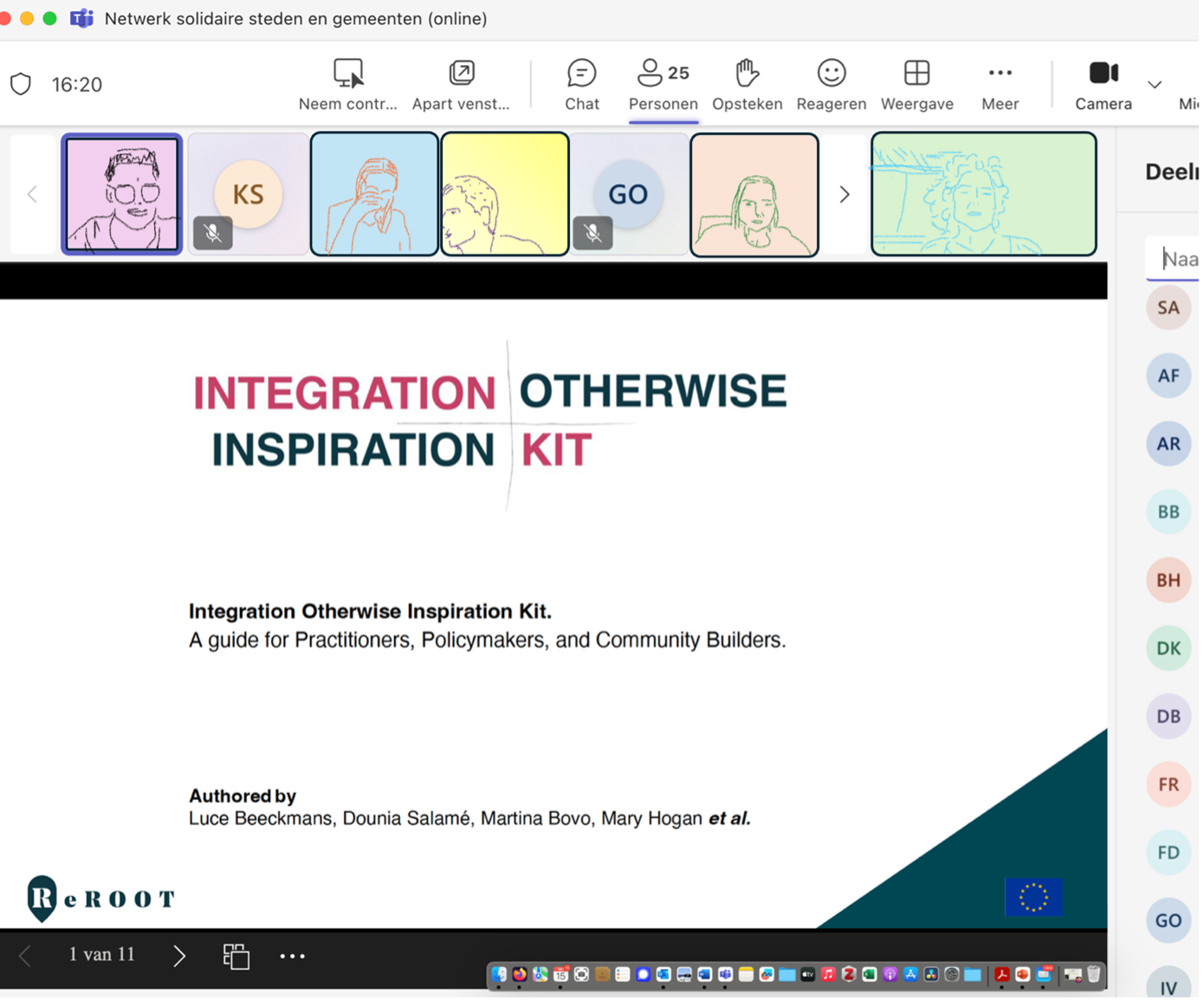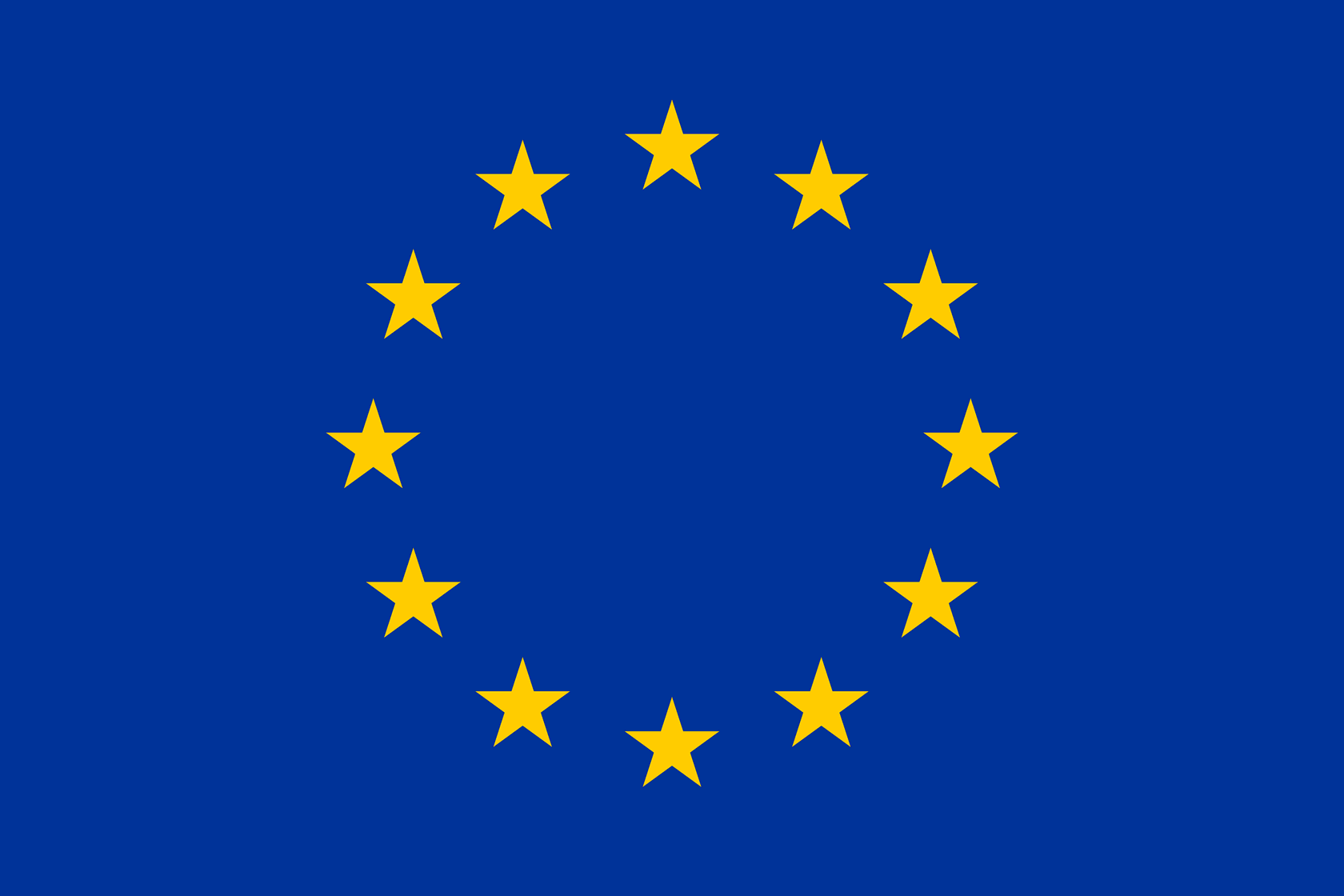An Online Network Meeting organised by Vluchtelingenwerk Vlaanderen
Text and visuals by Shila Anaraki
Text and visuals by Shila Anaraki
In May 2025, Vluchtelingenwerk Vlaanderen hosted an online workshop with the Network of Solidarity Cities and Municipalities, a platform that has, for the past five years, facilitated regular exchanges between Flemish local actors on matters related to asylum, migration, reception, integration, and civic participation.
This session brought together 25 participants representing of a wide range of stakeholders including members of the college of aldermen, integration and diversity officers, first line aid workers and representatives from the Cabinet of the Flemish Minister for Home Affairs, Urban and Rural Policy, Living Together, Integration, and Civic Integration.
The workshop began with a presentation of a policy brief and examples of innovative practices, delivered by academic researchers involved in the REFUFAM project. This project investigates the impact of government policy on the integration trajectories of refugee families. Drawing on these insights, participants then joined smaller working groups to apply tools from the Integration Otherwise Inspiration Kit, aiming to deepen dialogue around the complex realities of integration trajectories.
One such tool, originally designed to map the outreach of service organizations, was adapted specifically for this session. Instead of focusing solely on service outreach, the tool was used to map the formal and informal networks of local organizations and their staff. Participants reflected first on their organization’s core and secondary activities, then turned to identifying and valuing the often-overlooked personal knowledge and networks of staff members, what could be described as an organization’s ‘shadow infrastructure’. As one participant remarked, “The social map is well-developed and accessible, but personal networks still make a crucial difference.”
The workshop also introduced the concept of ‘minor integrations’: the everyday, small-scale social and spatial practices that support newcomers, ranging from formal infrastructures like schools to informal infrastructuring like peer support and shared housing. These minor integrations highlight that inclusion is not a single, linear process, but unfolds across multiple areas of life, through everyday interactions, informal support, and small-scale practices.
Concrete examples from local practices of the participants enriched the discussion. “Our buddy system consists of 80% non-native speakers,” one attendee noted. “Having diverse teams is essential ‒ they bring access to different social networks and can build bridges to their own communities.” Someone also shared, “We often rely on an informal network of translators. They are frequently refugees who’ve lived in the city longer and now help others find their way.”
Together, the policy brief and toolkit formed a practical and inspiring whole. The workshop offered a space for reflection and exchange, inviting local actors to think critically about their roles in shaping arrival processes and to engage with the diversity and mobility regimes that define local integration practices today.
This session brought together 25 participants representing of a wide range of stakeholders including members of the college of aldermen, integration and diversity officers, first line aid workers and representatives from the Cabinet of the Flemish Minister for Home Affairs, Urban and Rural Policy, Living Together, Integration, and Civic Integration.
The workshop began with a presentation of a policy brief and examples of innovative practices, delivered by academic researchers involved in the REFUFAM project. This project investigates the impact of government policy on the integration trajectories of refugee families. Drawing on these insights, participants then joined smaller working groups to apply tools from the Integration Otherwise Inspiration Kit, aiming to deepen dialogue around the complex realities of integration trajectories.
One such tool, originally designed to map the outreach of service organizations, was adapted specifically for this session. Instead of focusing solely on service outreach, the tool was used to map the formal and informal networks of local organizations and their staff. Participants reflected first on their organization’s core and secondary activities, then turned to identifying and valuing the often-overlooked personal knowledge and networks of staff members, what could be described as an organization’s ‘shadow infrastructure’. As one participant remarked, “The social map is well-developed and accessible, but personal networks still make a crucial difference.”
The workshop also introduced the concept of ‘minor integrations’: the everyday, small-scale social and spatial practices that support newcomers, ranging from formal infrastructures like schools to informal infrastructuring like peer support and shared housing. These minor integrations highlight that inclusion is not a single, linear process, but unfolds across multiple areas of life, through everyday interactions, informal support, and small-scale practices.
Concrete examples from local practices of the participants enriched the discussion. “Our buddy system consists of 80% non-native speakers,” one attendee noted. “Having diverse teams is essential ‒ they bring access to different social networks and can build bridges to their own communities.” Someone also shared, “We often rely on an informal network of translators. They are frequently refugees who’ve lived in the city longer and now help others find their way.”
Together, the policy brief and toolkit formed a practical and inspiring whole. The workshop offered a space for reflection and exchange, inviting local actors to think critically about their roles in shaping arrival processes and to engage with the diversity and mobility regimes that define local integration practices today.



